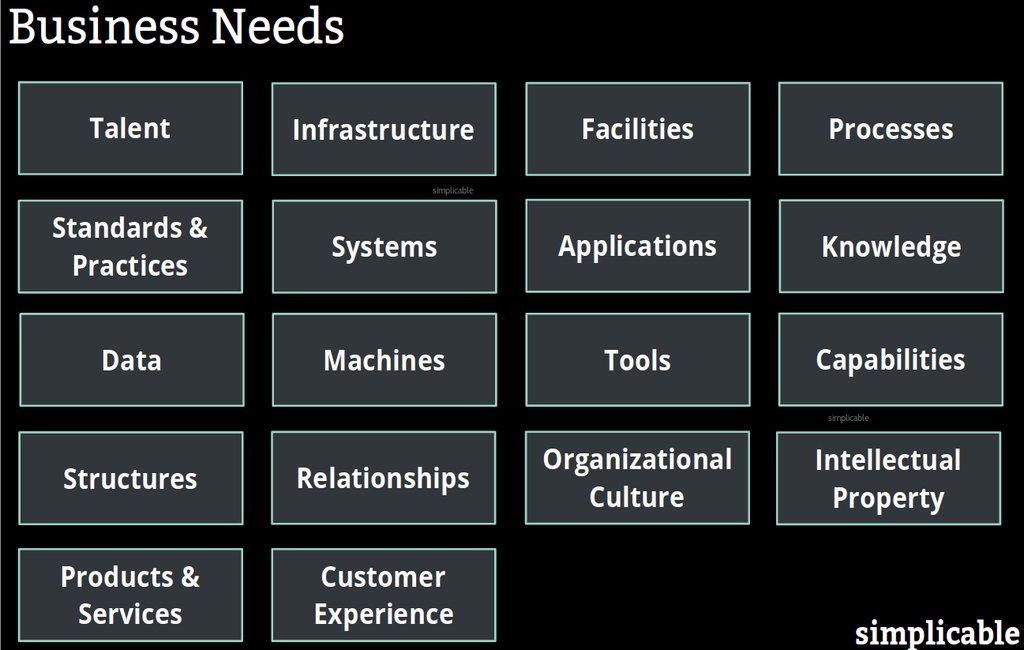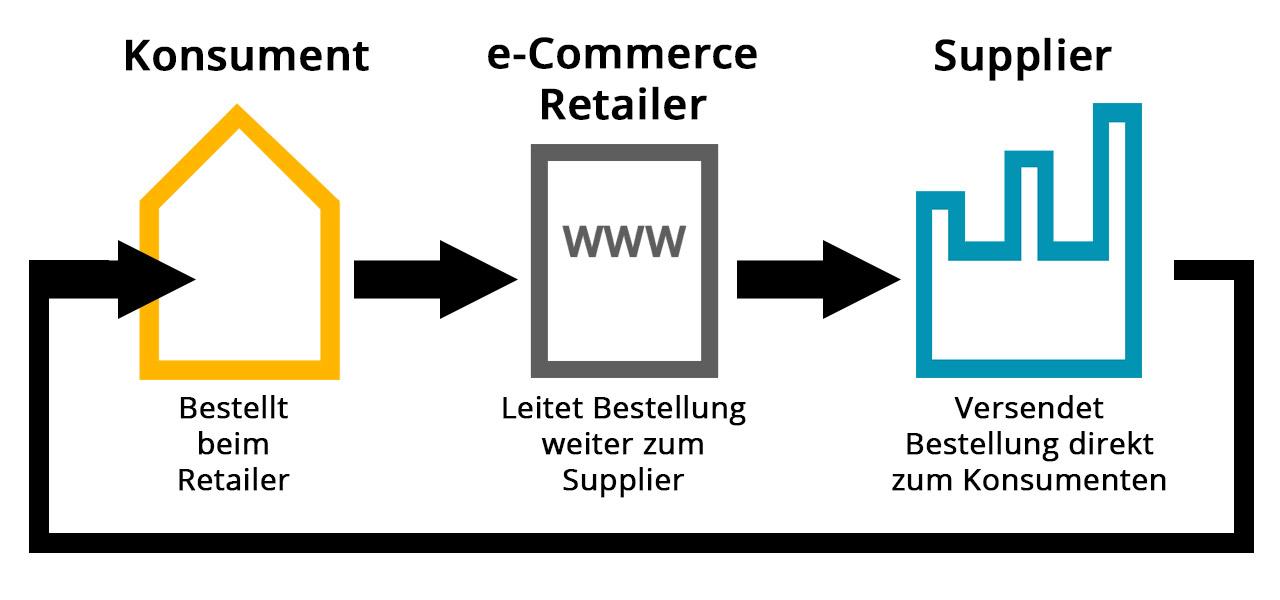When choosing an e-commerce platform, Shopify and WooCommerce often top the list. Shopify is perfect for those seeking an all-in-one solution with ease of use, while WooCommerce offers flexibility and customization for WordPress users. Decide what fits your needs best!
What is the Difference Between Shopify and WooCommerce
Are you ready to dive into the world of e-commerce but feeling a bit overwhelmed by the choices? You’re not alone! With platforms like Shopify and WooCommerce dominating the online store landscape, deciding which one to use can feel like a daunting task. Both offer unique features and benefits, but they cater to different needs and skill levels. In this article, we’ll break down the key differences between Shopify and WooCommerce, helping you find the perfect fit for your business. Whether you’re a budding entrepreneur or a seasoned pro, understanding these platforms will empower you to make an informed decision that can set you on the path to e-commerce success. So, let’s roll up our sleeves and explore what each platform has to offer!
Understanding Shopify and WooCommerce: A Quick Overview
When it comes to e-commerce platforms, Shopify and WooCommerce stand out as two of the most popular options available. Each has its own unique features and advantages, making them suitable for different types of users and businesses. Understanding their differences can help you make an informed decision based on your specific needs.
Shopify is a fully-hosted solution that takes care of all the technical aspects of running an online store. This means that you don’t have to worry about hosting, security, or software updates. Here are some key points to consider:
- Ease of Use: Shopify offers a user-friendly interface, making it easy for anyone to set up and manage a store without technical knowledge.
- Built-in Features: It comes with a plethora of built-in features, including payment processing, shipping options, and marketing tools.
- 24/7 Support: Shopify provides round-the-clock customer support, ensuring that you can get help when you need it.
On the flip side, WooCommerce is an open-source plugin for WordPress, making it a great choice for those who are already familiar with the WordPress ecosystem. Here’s what to keep in mind:
- Customization: With WooCommerce, you have complete control over your store’s design and functionality, as you can customize it to meet your specific needs.
- Cost-effective: While you may need to invest in hosting and security, WooCommerce can be more cost-effective for larger stores due to its flexibility.
- Scalability: WooCommerce allows you to scale your store as your business grows, without the limitations that some hosted solutions may impose.
To further illustrate the differences, here’s a quick comparison:
| Feature | Shopify | WooCommerce |
|---|---|---|
| Hosting | Included | Self-hosted |
| Ease of Use | Very Easy | Moderate |
| Customization | Limited | Highly Flexible |
| Support | 24/7 Support | Community Support |
Ultimately, the choice between Shopify and WooCommerce boils down to your individual preferences and business requirements. If you’re looking for a straightforward, all-in-one solution, Shopify may be your best bet. However, if you prioritize customization and have experience with WordPress, WooCommerce could provide the flexibility you need to create a unique online store.

Ease of Use: Which Platform is More User-Friendly?
When it comes to setting up and managing an online store, the user-friendliness of the platform can make all the difference. Both Shopify and WooCommerce cater to different types of users, and understanding their ease of use can help you make an informed choice.
Shopify is often lauded for its intuitive interface. Designed specifically for e-commerce, it allows users to get started quickly without a steep learning curve. Here are some features that contribute to its user-friendliness:
- Drag-and-Drop Builder: Customize your store layout easily without any coding knowledge.
- Integrated Hosting: No need to worry about server setup or maintenance; everything is managed for you.
- 24/7 Customer Support: Immediate help is just a click away, making troubleshooting a breeze.
On the other hand, WooCommerce, being a plugin for WordPress, offers more flexibility but comes with its own set of challenges. Here’s what you should keep in mind:
- WordPress Familiarity Required: A basic understanding of WordPress is necessary, which can intimidate new users.
- Customization Options: While there are countless themes and plugins available, navigating through them might feel overwhelming at first.
- Self-Hosting Needs: Users are responsible for their own hosting, which can complicate the setup process.
To help you visualize the differences, here’s a quick comparison of the two platforms:
| Feature | Shopify | WooCommerce |
|---|---|---|
| Setup Time | Quick and straightforward | Longer, requires more steps |
| Technical Knowledge | Minimal required | Moderate to high required |
| Customization | Limited to themes | Highly customizable |
| Support | 24/7 support | Community support and forums |
Ultimately, your choice will depend on your specific needs and technical comfort level. If you’re looking for a hassle-free setup and are focused solely on e-commerce, Shopify may be the ideal option. Conversely, if you value flexibility and are comfortable navigating the WordPress ecosystem, WooCommerce could be your perfect match.

Customization Options: Finding the Right Fit for Your Brand
Pricing Structures: Making Sense of Costs and Value
When considering Shopify and WooCommerce, one of the most pivotal aspects to evaluate is their pricing structures. Understanding the costs associated with each platform can help you make an informed decision that aligns with your budget and business goals.
Shopify operates on a subscription-based model, where users pay a monthly fee that includes hosting, security, and various essential features. The pricing tiers can range from basic plans to more advanced options, giving you flexibility based on the scale of your operations. Here’s a quick look at the typical plans:
| Plan | Monthly Cost | Key Features |
|---|---|---|
| Basic Shopify | $29 | Online store, 2 staff accounts, basic reports |
| Shopify | $79 | Professional reports, gift cards, 5 staff accounts |
| Advanced Shopify | $299 | Advanced report builder, 15 staff accounts, third-party calculated shipping rates |
On the other hand, WooCommerce is a plugin that transforms a WordPress site into a fully functional eCommerce store. This gives you the advantage of a more flexible pricing structure. While the WooCommerce plugin itself is free, there are additional costs to consider:
- Hosting: You’ll need to purchase hosting separately, which can range from $5 to over $30 monthly, depending on the provider.
- Domain Name: Typically around $10 to $15 per year.
- Extensions and Themes: Many are free, but premium options can range from $30 to $300 each.
Ultimately, the decision between Shopify and WooCommerce comes down to what you value. If you prefer a straightforward, all-in-one solution with clear pricing, Shopify may be your best bet. However, if you want complete control over your store, potentially lower long-term costs, and the ability to customize extensively, WooCommerce could be the ideal choice.
As you analyze your needs, remember to account for potential hidden costs, such as transaction fees or app subscriptions, which can significantly impact your overall budget on either platform. Being proactive in understanding these aspects will lead to a more successful eCommerce venture.
Payment Gateways: Flexibility and Transaction Fees Explored
When it comes to choosing a platform for your online store, understanding the flexibility of payment gateways and associated transaction fees is crucial. Both Shopify and WooCommerce offer a variety of options, but they cater to different needs and preferences.
Shopify is known for its seamless integration with a wide range of payment gateways. It offers built-in options like Shopify Payments, which allows for lower transaction fees compared to third-party gateways. However, if you opt for an external payment processor, you may incur additional fees. Here’s a quick look at the transaction fees based on the plan you choose:
| Shopify Plan | Transaction Fee |
|---|---|
| Basic | 2.9% + 30¢ |
| Shopify | 2.6% + 30¢ |
| Advanced | 2.4% + 30¢ |
In contrast, WooCommerce is open-source and allows for extensive customization. It gives you the freedom to choose from a multitude of payment gateways, including PayPal, Stripe, and others. Importantly, WooCommerce itself does not impose any transaction fees, but the payment gateways you select may charge their own fees. This flexibility means that you can potentially find a gateway that minimizes costs specific to your business model.
While both platforms offer robust payment solutions, consider the following factors:
- Ease of Setup: Shopify’s built-in gateways are simple to set up, making it great for those who want a fast start.
- Customization: WooCommerce allows for more customization options and a broader selection of gateways, which is ideal for tech-savvy users.
- Transaction Costs: Evaluate each platform’s fees based on your sales volume to determine where you can save money.
- Support: Shopify offers 24/7 customer support, which can be beneficial if you run into payment processing issues.
Ultimately, the choice between Shopify and WooCommerce regarding payment gateways depends on your business’s specific needs. If you value simplicity and a quick setup, Shopify might be your best bet. However, if you’re looking for flexibility and control over costs, WooCommerce could be the better option.

Scalability: How Each Platform Grows with Your Business
When considering an eCommerce platform, scalability is a critical factor that can make or break your business as it evolves. Both Shopify and WooCommerce offer scalable solutions, but they do so in different ways that cater to various business models and growth trajectories. Understanding these differences will help you choose the platform that best aligns with your long-term goals.
Shopify is a fully hosted solution designed for ease of use and quick scalability. As your store grows, Shopify ensures that you can handle increased traffic and sales without worrying about server management. Here are some key features that enhance its scalability:
- Unlimited Bandwidth: No matter how many visitors you attract, Shopify’s robust infrastructure can handle it.
- App Marketplace: Easily integrate with numerous apps to expand your functionality as your business needs grow.
- Shopify Plus: For enterprise-level clients, Shopify offers Plus, which provides advanced features and dedicated support for high-volume businesses.
On the other hand, WooCommerce is a plugin for WordPress that transforms your website into a fully functional online store. Its scalability largely depends on your WordPress hosting environment and setup. Here’s how WooCommerce accommodates growth:
- Custom Hosting Solutions: You can choose your hosting provider, allowing flexibility as you scale your resources up or down based on your traffic needs.
- Endless Customization: With thousands of plugins available, you can tailor your store’s functionality to match your evolving requirements.
- Control Over Infrastructure: Unlike hosted solutions, you have the ability to optimize your site based on your growth, ensuring it remains effective even as demand increases.
To help visualize the differences in scalability between these platforms, consider the following table:
| Feature | Shopify | WooCommerce |
|---|---|---|
| Hosting | Managed & Scalable | Self-Managed |
| Customization | Limited (Apps) | Extensive (Plugins) |
| Traffic Handling | Seamless | Depends on Hosting |
| Enterprise Support | Available | Community-Based |
Ultimately, the right choice hinges on how you envision your business’s growth trajectory. If you prefer a plug-and-play solution that allows you to focus on sales rather than tech, Shopify might be your best bet. Conversely, if you’re looking for a customizable platform that gives you complete control, WooCommerce could be the ideal choice. Understanding how each platform scales with your business will empower you to make an informed decision that enhances your eCommerce strategy.

Support and Community: Where to Turn for Help When You Need It
When navigating the waters of e-commerce platforms like Shopify and WooCommerce, it’s essential to know where to find support and community resources. Both platforms boast vibrant communities and various support channels that can help you resolve issues, share knowledge, and connect with fellow entrepreneurs.
Here are some key resources for finding help:
- Official Support: Both Shopify and WooCommerce offer official support channels. Shopify provides 24/7 support through live chat, email, and phone, while WooCommerce primarily supports users through their support page, with forums and documentation for troubleshooting.
- Community Forums: Engage with fellow users through community forums. Shopify has its Community Forum, where users can ask questions, share tips, and find solutions. On the other hand, WooCommerce has a dedicated support forum where the community actively participates.
- Social Media Groups: Both platforms have active social media groups on platforms like Facebook and LinkedIn. Joining these groups can provide you with a wealth of information from users who have faced similar challenges.
- Documentation and Tutorials: Don’t overlook the extensive documentation available. Shopify has a comprehensive knowledge base, while WooCommerce offers detailed guides and tutorials on their site to help users get the most out of their platforms.
In addition to the above resources, you can also seek out third-party support services. Many professionals specialize in Shopify and WooCommerce, offering consultation and troubleshooting services. Consider checking platforms like Upwork or Fiverr to find experts who can assist you with specific issues.
For a quick comparison of support features, here’s a handy table:
| Feature | Shopify | WooCommerce |
|---|---|---|
| 24/7 Customer Support | ✔️ | ❌ |
| Community Forum | ✔️ | ✔️ |
| Official Documentation | ✔️ | ✔️ |
| Social Media Groups | ✔️ | ✔️ |
Remember, whether you choose Shopify or WooCommerce, building connections within the community can significantly enhance your e-commerce journey. Don’t hesitate to reach out, ask questions, and share your experiences. The support is out there, waiting for you!

SEO Capabilities: Boosting Your Visibility Online
In the competitive world of e-commerce, having a solid SEO strategy is essential for any online store, whether you’re using Shopify or WooCommerce. Both platforms have built-in tools that can significantly enhance your visibility in search engine results, but how they approach SEO can differ significantly. Understanding these nuances will empower you to make better decisions for your online business.
Shopify is known for its user-friendly interface, which makes it easier for newcomers to optimize their stores for SEO without extensive technical knowledge. Here are some of the key features:
- Automatic sitemaps: Shopify generates a sitemap.xml file automatically, helping search engines to index your pages efficiently.
- Customizable URLs: You can create SEO-friendly URLs for your products, collections, and pages, ensuring they are clear and relevant.
- Built-in blog: Shopify allows you to add a blog to your store, which is a great way to generate content and improve your SEO rankings.
On the other hand, WooCommerce, as a plugin for WordPress, offers a different approach that caters to those who want more control over their SEO settings. Some standout features include:
- Advanced plugins: With plugins like Yoast SEO, you can enhance your SEO capabilities with features like keyword optimization, readability checks, and more.
- Custom taxonomies: WooCommerce allows you to create custom taxonomies, giving you the flexibility to categorize products in ways that make sense for your customers.
- Full control over meta tags: Unlike Shopify, WooCommerce gives you complete control over your meta titles and descriptions, allowing for more tailored optimization.
When it comes to performance, both platforms have their strengths. Shopify tends to be faster out of the box, which can positively impact SEO, as site speed is a ranking factor. Conversely, WooCommerce relies on your hosting provider, so optimizing speed might require additional effort. Below is a simple comparison:
| Feature | Shopify | WooCommerce |
|---|---|---|
| Ease of Use | High | Medium |
| SEO Tools | Built-in | Extensive Plugins |
| Site Speed | Optimized | Depends on Hosting |
| Customizability | Limited | High |
No matter which platform you choose, investing time in SEO is essential for driving organic traffic to your store. Regularly updating your content, optimizing your product descriptions, and utilizing social media can further enhance your online visibility. Whether you’re leaning towards the simplicity of Shopify or the customization potential of WooCommerce, your choice should align with your business goals and expertise.

Choosing the Best Option for Your Business Needs
When weighing the options between Shopify and WooCommerce, it’s essential to consider several factors that align with your business goals. Each platform brings its unique strengths and weaknesses, so understanding these will help you make an informed decision.
Shopify is perfect for those who desire a straightforward, all-in-one solution. With its user-friendly interface, you can set up an online store quickly, allowing you to focus more on selling rather than technical details. Here are some of its prime features:
- Hosted Solution: You don’t have to worry about server management or hosting costs.
- Built-in Payment Processing: Simple integration with various payment gateways.
- Customer Support: 24/7 support to assist you whenever needed.
On the other hand, WooCommerce is an excellent choice for those who prefer more control and flexibility. As a plugin for WordPress, it allows for extensive customizations and scalability. Here’s what you can expect:
- Full Control: You own your data and can customize your site as per your needs.
- Cost-Effective: The base plugin is free, with additional paid extensions as needed.
- SEO Friendly: Leverage WordPress’s robust SEO capabilities to boost visibility.
When it comes to cost, Shopify typically operates on a subscription model, which can be beneficial for businesses looking for predictable expenses. Conversely, WooCommerce may be more economical in the long run, especially for those who are already familiar with WordPress and can navigate the setup. Consider the following comparison:
| Feature | Shopify | WooCommerce |
|---|---|---|
| Initial Setup Cost | Monthly subscription fees | Free plugin; hosting costs apply |
| Customization | Limited to themes and apps | Highly customizable with PHP |
| Technical Skills Required | Minimal | Moderate to high |
Ultimately, your choice should reflect your business model, technical proficiency, and growth strategy. If you’re looking for rapid deployment and minimal hassle, Shopify may be your best bet. However, if you value customization, control, and adaptability, WooCommerce could be the ideal platform to elevate your business.

Final Thoughts: Making an Informed Decision for Your E-commerce Journey
Choosing the right platform for your e-commerce venture can be a game-changer, impacting everything from your operational efficiency to your bottom line. With Shopify and WooCommerce being two of the leading options available, evaluating their differences is crucial for your success. Each platform brings distinct features and functionalities, catering to different types of businesses and their unique needs.
When weighing your options, consider the following key factors:
- Ease of Use: Shopify is known for its user-friendly interface, allowing newcomers to set up their online store quickly. On the other hand, WooCommerce requires a bit more technical know-how, especially since it runs on WordPress.
- Customization: If you crave flexibility, WooCommerce shines with its vast array of plugins and themes. Shopify also offers customization but within a more structured environment.
- Cost: Analyze the pricing models. Shopify has a straightforward monthly fee, while WooCommerce is free to use but may incur costs for hosting, themes, and plugins.
- Support: Shopify provides 24/7 customer support, which can be a lifesaver if you encounter issues. WooCommerce relies largely on community support, which may be slower to respond.
It’s also essential to factor in your business goals. If you envision scaling quickly and prefer a hands-off approach, Shopify may align more closely with your ambitions. Conversely, if you value control over every aspect of your site and plan to grow organically, WooCommerce could be the better fit.
| Feature | Shopify | WooCommerce |
|---|---|---|
| Hosting | Included | Self-hosted |
| Transaction Fees | Yes | No |
| Themes | Limited | Extensive |
| SEO Tools | Basic | Advanced |
Ultimately, the decision between Shopify and WooCommerce hinges on your specific needs and long-term vision. By weighing the pros and cons and analyzing what each platform offers, you can make an informed choice that sets the stage for your e-commerce success. Remember, investing time in research today will pay off significantly tomorrow.
Frequently Asked Questions (FAQ)
Q&A: What is the Difference Between Shopify and WooCommerce?
Q1: What are Shopify and WooCommerce?
A1: Great question! Shopify and WooCommerce are two of the most popular e-commerce platforms out there. Shopify is a fully hosted solution, which means it takes care of everything for you—from hosting to security. It’s perfect for those who want an all-in-one package with minimal tech hassle. On the other hand, WooCommerce is a plugin for WordPress, which gives you more control and flexibility. If you’re already familiar with WordPress, WooCommerce could be a natural choice!
Q2: Which platform is easier to set up?
A2: If you’re looking for ease of setup, Shopify takes the cake. With its user-friendly interface and guided setup, you can have your online store up and running in no time! WooCommerce requires a bit more technical know-how, as you’ll need to install WordPress, set up hosting, and then add the WooCommerce plugin. If you love tinkering and customizing, WooCommerce can be rewarding, but it does have a steeper learning curve.
Q3: How do they compare in terms of customization?
A3: Customization is where WooCommerce shines! Being built on WordPress, it offers endless themes and plugins, allowing you to tailor your store precisely to your needs. Shopify also allows customization, but it has its limits. You can choose from a variety of themes and apps, but customizing the code can be a bit restrictive unless you’re comfortable with Liquid, Shopify’s templating language.
Q4: What about costs? Which is more affordable?
A4: Ah, the all-important question of cost! Shopify has a monthly subscription model, which starts at a reasonable price, but can add up with transaction fees and premium apps. WooCommerce is free to use, but you’ll need to factor in hosting, domain registration, and any premium themes or plugins. So, while WooCommerce can be more affordable upfront, keep in mind that costs can accrue depending on your needs.
Q5: How do they handle payment processing?
A5: Both platforms support various payment gateways, but they have different approaches. Shopify has its own payment processor, Shopify Payments, which simplifies everything and integrates seamlessly. However, if you choose third-party payment gateways, you’ll incur additional fees. WooCommerce offers more flexibility in payment processing with numerous options available, and there are no additional fees from WooCommerce itself. You simply need to choose the gateways that work best for you!
Q6: What about support and updates?
A6: If you want peace of mind, Shopify provides 24/7 customer support, which is fantastic for those who may not be tech-savvy. With WooCommerce, support is largely community-driven, and while there’s a wealth of documentation available, you may find yourself troubleshooting on your own more often. Additionally, Shopify handles all updates for you, while with WooCommerce, you’ll need to manage your own WordPress updates and plugin maintenance.
Q7: Which is better for SEO?
A7: When it comes to SEO, WooCommerce has the edge. Since it’s built on WordPress, which is known for its SEO capabilities, you have access to powerful plugins like Yoast SEO to help optimize your site. Shopify is also SEO-friendly and offers built-in features, but it may not be as comprehensive as the options available with WooCommerce.
Q8: In a nutshell, which should I choose?
A8: Ultimately, it depends on your needs! If you want a straightforward, hassle-free experience and are willing to pay a bit more for convenience, Shopify is a fantastic option. However, if you’re looking for extensive customization, flexibility, and potentially lower long-term costs (with a little extra work), WooCommerce could be the way to go. Just think about what matters most to you and your business, and you’ll find the right fit!
Final Thoughts
choosing between Shopify and WooCommerce ultimately comes down to your unique business needs, technical expertise, and growth ambitions. Shopify offers a streamlined, user-friendly experience that’s perfect for those who want to hit the ground running without getting bogged down in the weeds of web development. On the other hand, WooCommerce provides the flexibility and control that can be a game-changer for those who are comfortable navigating a bit of complexity and want to customize every detail of their online store.
As you weigh your options, consider what matters most to you: ease of use or customization? Budget constraints or scalability? Thankfully, both platforms shine in their own right, giving you the tools to build a successful online store that fits your vision.
Take a moment to reflect on your goals, and don’t hesitate to reach out to the communities surrounding these platforms for insights and support. Whichever path you choose, remember that the right e-commerce platform will empower you to bring your ideas to life and connect with customers in meaningful ways. Happy selling!






